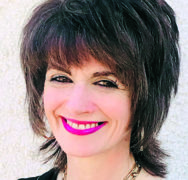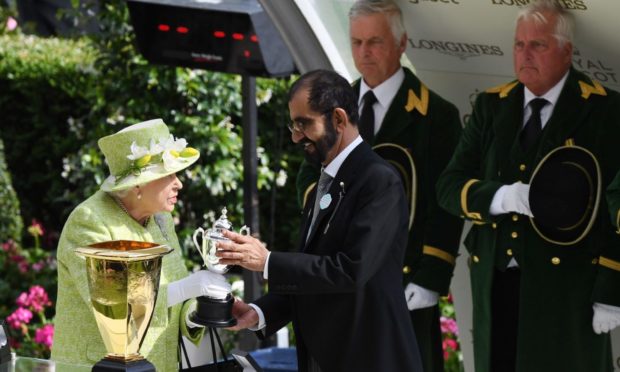As a child, there was a particular magic in fairy tales that mentioned Arabia or Persia. Those names spoke of midnight blue skies studded with diamond stars; of cobbled alleyways in hot and dusty souks; magic lamps and secret caverns of Ali Baba riches.
They had rearing white steeds on open plains, ridden by royal princes whose arms gripped the waists of beautiful women destined to be Persian princesses. That was glamour. At 10, my sense of geography was romantic but hazy; my feminist theory beyond dodgy.
 In truth, there can be few areas of the modern world less glamorous to be a woman than the countries clustered around the Arabian peninsula.
In truth, there can be few areas of the modern world less glamorous to be a woman than the countries clustered around the Arabian peninsula.
Who could fail to be disturbed by recent smuggled footage of Princess Latifa, the pale-faced daughter of Sheikh Mohammed bin Rashid Al Maktoum, ruler of Dubai? After an unsuccessful 2018 attempt to escape the country, when she was returned to Dubai at gunpoint, Latifa was imprisoned in a villa. For the last two years, she has lived with bars on her windows and policemen barring her exit. In the footage, she was huddled in a toilet, her only private space, speaking into a smuggled phone, her huge, frightened dark eyes staring from the white canvas of her face.
Princess Latifa, missing daughter of Dubai’s ruler, describes being drugged and held "hostage" on her father's orders, in secret footage seen by @BBCPanorama #MissingPrincesspic.twitter.com/muIOIQCLie
— BBC News Press Team (@BBCNewsPR) February 16, 2021
But even more disturbing is the silence following that footage. I have waited these last six weeks, waited for action to follow the short kerfuffle that Latifa’s video prompted, the little flurries of noise that turned out to be no more than embarrassed coughs in the silence.
Ahem… where is Latifa? asked the UN. Anybody?
“Disturbing,” murmured Boris shuffling sideways. “Concerning,” said Foreign Secretary Dominic Raab, backing out of the room in the hope that nobody saw him go. “But not our business,” he added as the door closed.
Is it possible, in 2021, for a man, by virtue of his power and his wealth, to imprison his daughter, like some ancient king in the Arabian Nights? For the world to simply watch? Apparently so.
The sheikh has got away with it before. Latifa, 35, is the second of his 25 children to attempt to flee Dubai. In 2000, her sister Shamsa made a desperate call to a British solicitor. A few days later, she was whisked off the streets of Cambridge by four Arab men and has since disappeared from public view.
Then there’s his ex-wife, 46-year-old Princess Haya, who made it to a family court in London with her two young children. The court ruled she had been subject to a campaign of intimidation by the sheikh.
The world’s reaction? Unfortunate. Now, horse racing anyone?
So there’s the sheikh and the Queen chatting intimately – and frequently – at the biggest events on the horse racing annual calendar. And here he is, unlike his daughters, moving freely round the world at will.
Money makes the world go round, the world go round…
Why? Because the sheikh is one of the wealthiest royals in the world with a fortune of £3 billion.
Because just the sniff of all that filthy lucre is enough to make political principle shrivel like a vine in frost.
Because, from 2008 to 2017, the UK sold £7.3bn worth of weapons and dual-use equipment to the United Arab Emirates.
And also because, across the pond, the US confirmed a multi-billion-pound arms deal with the UAE and Saudi Arabia in 2020 – and that was after the Crown Prince of Saudi Arabia was identified as the man who ordered the death of US-based journalist Jamal Khashoggi. Money makes the world go round, the world go round…
The sheikh considers himself something of a wordsmith. He attended university in Britain, writes poetry, and has produced several books. In one, he recounts waking up in the desert with the pain of spiders biting him.
Alas, it seems that international accountability is as much a fairy tale notion as the privileged Persian princesses of the Arabian Nights.”
This seemed to happen to him more than the other children. Then he discovered the spiders were being planted deliberately to toughen him up. Now, he claims, he is immune to spider venom.
His chilling conclusion? “Not all that hurts you is evil. Sometimes, pain teaches and protects.”
The sheikh is photographed often: An urbane, international figure. If there is such a thing as “international” that is.
Two daughters of King Abdullah of Saudi Arabia, who suffered the same fate as Princess Latifa, say they waited years for the so-called “international community” to protest their treatment. Like we are all waiting still.
Alas, it seems that international accountability is as much a fairy tale notion as the privileged Persian princesses of the Arabian Nights.
